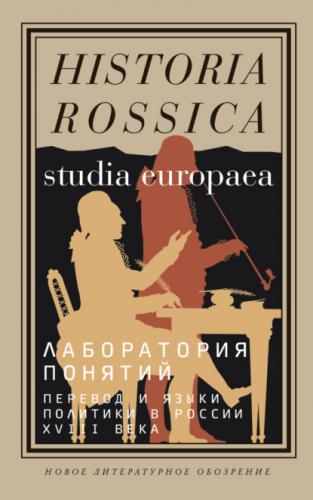23
Boutcher W. From Cultural Translation to Cultures of Translation? Early Modern Readers, Sellers and Patrons // Demetriou T., Tomlinson R. (Eds). The Culture of Translation in Early Modern England and France, 1500–1660. L., 2015. P. 23. Из последних работ о деятельности русских переводчиков раннего Нового времени см.: Переводчики и переводы в России конца XVI – начала XVIII столетия: материалы межд. научн. конф. (Москва, 12–13 сентября 2019 г.). М., 2019.
24
См.: Cultural Translation in Early Modern Europe / Ed. by P. Burke and R. Po-Chia Hsia. Cambridge, 2007. P. 8–10.
25
Pernau M. Whither Conceptual History? From National to Entangled History // Contributions to the History of Concepts. Vol. 7. 2012. Issue 1. P. 7.
26
Эта проблематика представлена в рамках направления Entangled history (Histoire croisée), см.: Werner M., Zimmermann B. Beyond Comparison: Histoire Croisée and the Challenge of Reflexivity // History and Theory. 2006. № 45. P. 30–50; Adam T. Intercultural Transfers and the Making of the Modern World, 1800–2000: Sources and Contexts. N. Y., 2011.
27
См.: Словарь основных исторических понятий. Т. 1. С. 24–44; История понятий, история дискурса, история метафор / Под ред. Х. Э. Бёдекера. М., 2010.
28
См.: Pocock J. G. A. Concepts and Discourses: A Difference in Culture? Comment on a Paper by Melvin Richter // Lehmann H., Richter M. (Eds). The Meaning of Historical Terms and Concepts: New Studies on Begriffsgeschichte. Washington, 1996. P. 47–58; Richter M. Pocock, Skinner and Begriffsgeschichte // The History of Political and Social Concepts: A Critical Introduction / Ed. by M. Richter. New York; Oxford, 1995. P. 124–142.
29
Отчет о конференции см.: Burke M. J. Translation, the History of Political Thought, and the History of Concepts (Begriffsgeschichte) // Bulletin of the German Historical Institute. Bulletin 38 (Spring 2006). P. 149–152.
30
Burke M. J., Richter M. (Eds). Why Concepts Matter: Translating Social and Political Thought. Leiden; Boston, 2012.
31
Howland D. R. Translating the West: Language and Political Reason in 19th-century Japan. Honolulu, 2001. Рус. пер.: Хауленд Д. Перевод с западного: формирование политического языка и политической мысли в Японии XIX в. / Пер. с англ. А. В. Матешук. М.; Челябинск, 2020.
32
См., например: Schaffer F. C. Democracy in Translation: Understanding Politics in an Unfamiliar Culture. Ithaca, 1998; Kurtz J. Translating the Vocation of Man: Liang Qichao (1873–1929), J. G. Fichte, and the Body Politic in Early Republican China // Burke, Richter (Eds). Why Concepts Matter: Translating Political and Social Thought. Р. 153–176; Yuezhi X. Liberty, Democracy, President: The Translation and Usage of Some Political Terms in Late Quing China // New Terms for New Ideas: Western Knowledge and Lexical Change in Late Imperial China / Co-edited by M. Lackner, I. Amelung, J. Kurtz. Leiden, 2001. P. 69–94.
33
Burke P. Translating the Turk // Burke, Richter (Eds). Why Concepts Matter: Translating Political and Social Thought. Р. 141–152.
34
Pernau. Whither Conceptual History? P. 7.
35
В традиционных культурах «верность слову» часто воспринималась как обязательное требование переводчику; особенно в священных текстах оригинал должен был быть воспроизведен переводчиком дословно, поскольку нарушение внешнего порядка могло повлечь за собой искажение внутреннего содержания. В древнерусской культуре эта теория перевода не была единственной, она противостояла теории открытого перевода, вольному переводу, грамматическому переводу и так далее. Об особом понимании перевода «от слова до слова» и его значении в древнерусской культуре см.: Матхаузерова С. Древнерусские теории искусства слова. Praha,
